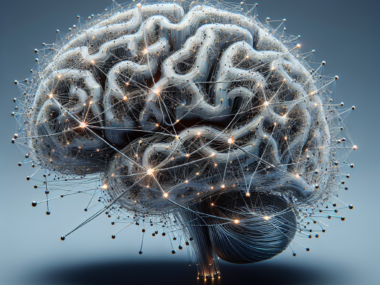In the era of advanced technology, artificial intelligence (AI) is playing an increasingly influential role in various sectors, from healthcare and finance to law enforcement and education. AI has the potential to transform decision-making processes, offering efficiencies and insights unimaginable just a few years ago. However, the rapid integration of AI into critical decision-making raises significant ethical concerns that must be addressed. This article delves into the ethical implications of AI in decision-making, exploring its benefits, challenges, and the importance of establishing a robust ethical framework.
The Promises of AI in Decision-Making
AI systems can analyze vast amounts of data at unprecedented speeds, uncovering patterns and correlations that human decision-makers might overlook. For instance, in healthcare, AI algorithms can aid in diagnosing diseases by analyzing medical records and imaging results, sometimes with greater accuracy than human physicians. In finance, AI can optimize trading strategies and risk assessments, leading to more informed investment decisions. Similarly, AI applications in criminal justice aim to predict recidivism rates, thus assisting judges and parole boards in making informed decisions about sentencing and release.
The efficiency and accuracy brought by AI offer promising opportunities for various industries. However, the benefits come with inherent risks that need careful consideration.
The Ethical Dilemmas
1. Bias and Discrimination
One major ethical concern surrounding AI decision-making is the potential for bias and discrimination. AI algorithms learn from historical data, which may embody existing societal inequalities. For example, if an AI system is trained on data that reflects biased policing practices, it may inadvertently perpetuate these biases in its predictions. Consequently, marginalized communities can be further disadvantaged, exacerbating social injustices.
Efforts to address bias must begin with the datasets used to train AI. Diverse and representative datasets are essential to mitigate bias, but achieving this can be challenging. Moreover, ongoing monitoring is crucial to assess AI’s impact on different demographic groups continually.
2. Accountability and Transparency
As AI systems take on more decision-making roles, the question of accountability becomes pressing. If an algorithm makes a flawed decision—such as misdiagnosing a patient or denying a loan—who is liable? The opacity of many machine learning models complicates accountability, as even developers may struggle to fully comprehend the decision-making process of advanced algorithms.
Transparent AI systems, where stakeholders can understand how decisions are made, are fundamental to building trust. Initiatives to create explainable AI (XAI) aim to develop models that provide clear reasoning behind their decisions. This transparency can help ensure that the decision-making process adheres to ethical standards and allows for informed recourse in the event of errors.
3. Privacy Concerns
AI’s ability to process large amounts of data inevitably raises privacy concerns. In many cases, the data used by AI systems includes sensitive personal information. The potential for misuse—be it by corporations, governments, or cybercriminals—poses significant ethical dilemmas.
Regulations such as the General Data Protection Regulation (GDPR) in Europe aim to safeguard personal data, but the rapid evolution of AI technology presents challenges in effectively enforcing these regulations. Organizations must prioritize data privacy, ensuring that personal information is collected, stored, and used in ethically responsible ways.
Establishing Ethical Frameworks
To harness the benefits of AI while mitigating its ethical pitfalls, societies must work collaboratively to establish ethical frameworks that govern AI decision-making. Several key principles should guide the development and deployment of AI systems:
-
Fairness: AI systems should be designed and monitored to minimize bias, ensuring equitable treatment across diverse populations.
-
Transparency: Clear communication about AI’s decision-making processes will enable individuals to understand and trust AI-driven outcomes.
-
Accountability: Establishing clear lines of responsibility for AI decisions will ensure that individuals and organizations can be held accountable for the consequences of their actions.
-
Privacy: Protecting personal data and respecting individuals’ privacy rights must remain paramount in the design and implementation of AI systems.
- Human Oversight: While AI can provide valuable insights, human judgment should remain integral to the decision-making process, particularly in high-stakes areas like healthcare and criminal justice.
Conclusion
As AI continues to permeate various aspects of society, the ethical implications of its decision-making processes cannot be overlooked. While AI holds the potential to enhance efficiency and accuracy, it also poses risks that could undermine social justice, accountability, and privacy. Establishing comprehensive ethical frameworks will be essential in navigating the landscape of AI decision-making, ensuring that technology serves humanity in a fair and responsible manner. By addressing these challenges, we can move beyond algorithms and foster a future where AI contributes positively to our society.











